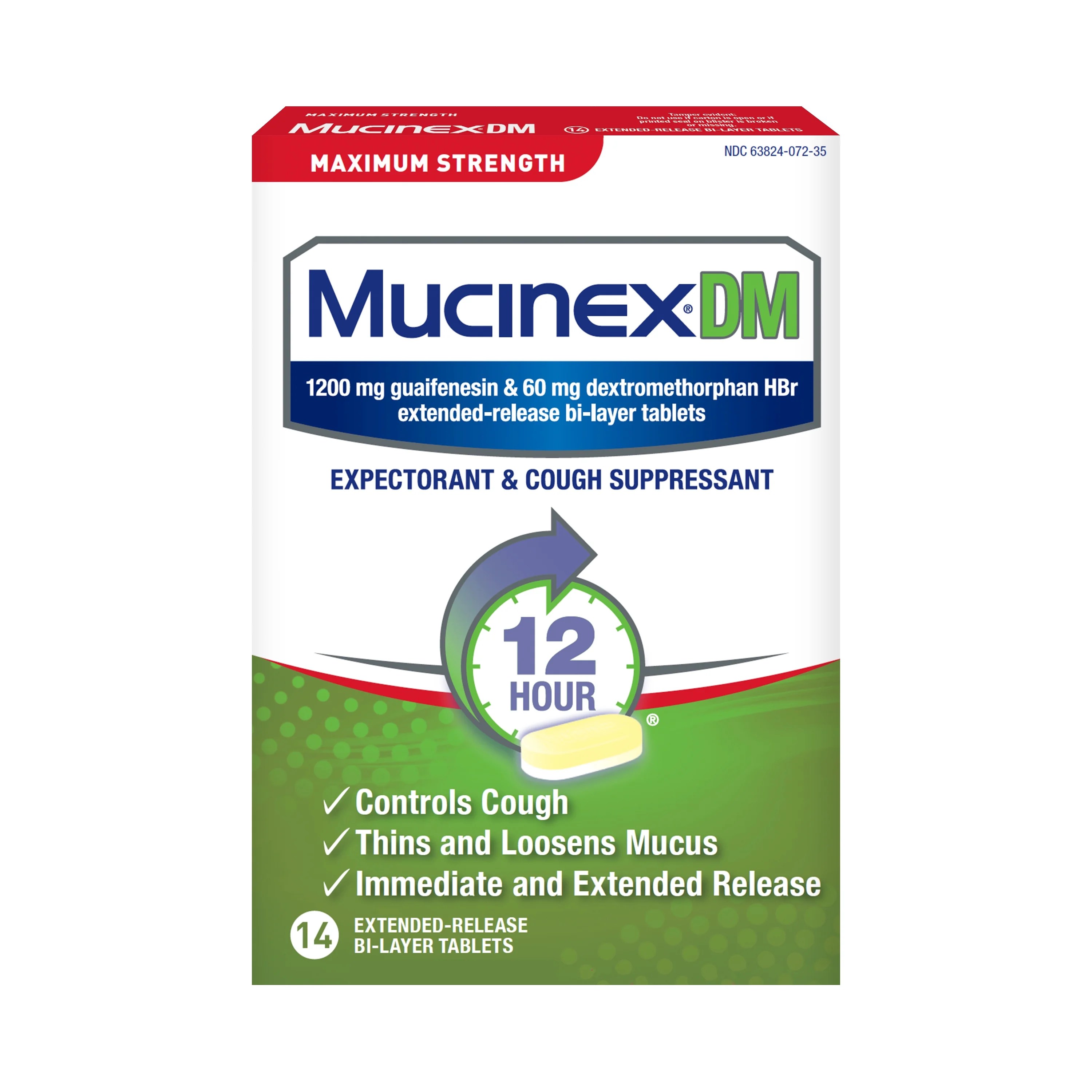Coughing can be a frustrating symptom of various respiratory conditions, and many people turn to over-the-counter medications like Mucinex for relief. However, there is often confusion surrounding the effects of Mucinex on coughing. Does it truly alleviate cough, or could it potentially worsen the symptom? In this article, we will delve deep into the effects of Mucinex, its active ingredients, and how it influences coughing. By the end, you'll have a clear understanding of whether Mucinex can make you cough more or help you find relief.
Before we explore the details, it’s important to understand what Mucinex is and how it works. Mucinex, the brand name for the drug guaifenesin, is an expectorant designed to help loosen mucus in the airways. This action theoretically helps to clear congestion and reduces coughing caused by mucus buildup. However, some users report an increase in coughing after taking Mucinex, leading to questions about its effectiveness and side effects.
Throughout this article, we will examine the mechanism of action of Mucinex, factors that influence its effectiveness, and user experiences. We aim to provide an authoritative, well-researched guide to help you make informed decisions regarding your cough treatment options.
Table of Contents
- What is Mucinex?
- How Does Mucinex Work?
- Is Coughing Normal With Mucinex?
- Potential Side Effects of Mucinex
- User Experiences and Reviews
- When to See a Doctor
- Alternative Treatments for Coughing
- Conclusion
What is Mucinex?
Mucinex is an over-the-counter medication primarily used to relieve chest congestion caused by colds, infections, or allergies. Its active ingredient, guaifenesin, works as an expectorant, which means it helps thin and loosen mucus in the airways. By doing so, Mucinex aims to promote a more productive cough, allowing the mucus to be expelled more easily.
Key Ingredients and Formulations
- Guaifenesin: The primary active ingredient.
- Other Ingredients: Depending on the formulation, Mucinex may also contain additional ingredients such as dextromethorphan (a cough suppressant) or phenylephrine (a decongestant).
How Does Mucinex Work?
The mechanism by which Mucinex operates involves the thinning of mucus. When mucus in the respiratory tract becomes thick and sticky, it can lead to a persistent cough as the body attempts to clear it. Guaifenesin alters the consistency of mucus, making it easier to expel through coughing.
Dosage and Administration
It’s essential to follow dosage instructions on the label or as directed by a healthcare professional to maximize the effectiveness of Mucinex and minimize the risk of side effects.
Is Coughing Normal With Mucinex?
While Mucinex is designed to help relieve coughing by facilitating the expulsion of mucus, some individuals may experience increased coughing after taking it. This can happen for several reasons:
- Mucus Clearance: As Mucinex thins mucus, the body may produce a stronger urge to cough to clear the loosened mucus.
- Underlying Conditions: If a cough is caused by conditions such as asthma or bronchitis, Mucinex may not alleviate symptoms effectively, leading to continued coughing.
Potential Side Effects of Mucinex
Like any medication, Mucinex can have side effects. Common side effects may include:
- Nausea
- Dizziness
- Headache
- Stomach upset
In rare cases, users may experience allergic reactions or other serious side effects. It’s crucial to monitor your response to the medication and consult a healthcare provider if you have concerns.
User Experiences and Reviews
User experiences with Mucinex vary widely. Some individuals report significant relief from coughing and congestion, while others note an increase in coughing. Here are some common themes from user reviews:
- Many users appreciate the effectiveness of Mucinex in thinning mucus.
- Some individuals report that the coughing increased initially, which subsided after a few days.
- A portion of users found that Mucinex did not provide enough relief for chronic coughs or underlying conditions.
When to See a Doctor
If your cough persists for more than a week, worsens, or is accompanied by other concerning symptoms (such as high fever, shortness of breath, or chest pain), it is essential to consult a healthcare professional. They can provide a more accurate diagnosis and recommend appropriate treatment options.
Alternative Treatments for Coughing
If Mucinex does not provide the relief you need, consider the following alternative treatments:
- Expectorants: Other expectorants may help with mucus clearance.
- Steam Inhalation: Inhaling steam can help loosen mucus.
- Honey and Lemon: A mixture of honey and lemon can soothe the throat and reduce coughing.
Conclusion
In conclusion, Mucinex can effectively help relieve coughing caused by mucus buildup, but individual experiences may vary. While some users may find that Mucinex leads to increased coughing as their body expels loosened mucus, others may experience a reduction in symptoms. Always consult with a healthcare professional before starting any new medication, especially if you have underlying health conditions or are taking other medications.
If you have further questions about Mucinex or your cough, please leave a comment below or share this article with someone who might benefit from it. For more health-related articles, feel free to explore our website!
Thank you for reading, and we hope to see you back here for more informative content!
You Might Also Like
Understanding The Plural Of A Moose: An In-Depth GuideHow Many Millimeters In A Teaspoon? A Comprehensive Guide
Mastering The Art Of Affiliate Marketing: Your Complete Guide
Is Kaido Dead? Unraveling The Mystery Behind One Piece's Most Powerful Yonko
What's On The Border Between Louisiana And Texas: A Comprehensive Guide
Article Recommendations
- Arianna Lima 2024
- Deacon Johnson
- Poker Face Sunglasses
- Jeremy Wariner Net Worth
- Career Advancement_0.xml
- Debutante
- Long Handled Post Hole Diggers
- Financial Empowerment_0.xml
- Ruben Roman
- How Old Is Miguel Diaz


